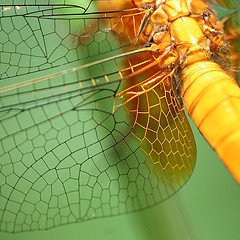And now you are there, and withdrawal is upon you. What are some of the dangers involved in going through it? What is the experience likely to bring you? How can you survive the inevitable temptations to slide back into old patterns?
The dangers can be described as being of two types. The first type involves the dangers inherent in the inner process itself. The second involves dangers stemming from outside yourself which can make it seem impossible for you to go through withdrawal, and can influence you to abort it.
Perhaps the greatest inner danger comes from finding yourself face-to-face with the unknown. It is one thing to make a decision to withdraw when the painful stimulus of a recent addictive episode is still fresh. It is quite another thing to be open to withdrawal, not as a reaction to a specific addictive situation, but as a response to a recognizable life-pattern of addiction. Yet this larger perspective on the withdrawal experience is crucial if it is to be endured. What we have found is that once we have recognized certain bottom-line behavior which we know is addictive for us, and refrain from acting out in these "bottom- line" ways on a daily basis, we then discover numerous habits and traits of behavior and personality that have been addiction-related.
The chapter goes on to talk about how in withdrawal we discovered many behaviors that surrounded and promoted our addictions, but had been covered by the intensity of acting out. It also talks about the ways we dealt with this new life -- doing the simple things like paying the bills and taking a shower, going to work. Then it says:
The purpose of all this was not to clutter our day with activity. Most of us needed rest and solitude just as much as we needed other tasks, personal contacts and responsibilities. We were, within ourselves, expending as much energy as most people do who hold full-time jobs and maintain active family lives. In fact, most of us were "working" far harder than we ever had before. After all, we were working at standing still, at freeing ourselves from the tentacled clasp of a frightful addiction which had driven us to such a pitch of self-destroying activity. Simply not doing it took tremendous effort. We were suspending, for the moment, our very real fears concerning the outcome of all this by attending to those tasks immediately at hand. We were living in the immediate present, and discovering that we could indeed make it through an hour, or a morning (mourning!), or a day. And we were discovering that there was a joy to be had in successfully negotiating our way through each twenty-four hour period.
We found that the most healing antidote to the gnawing pain of our struggles and doubts was to turn over any questions concerning the outcome of our withdrawal to God, or to whatever Power we felt was helping us to abstain from our old patterns.
Through all of this we became, one day at a time, available to ourselves. By the simple act of "standing still," we inaugurated a relationship with ourselves based on growing self-honesty, trust, and intimacy. Now we knew that our goal in withdrawal was to lay the foundation for personal wholeness. How this would translate into personal relationships or careers, we did not know. But what we did know was that the externals would eventually develop around this inner foundation of wholeness, and come to reflect our inner state. We were able to embrace this feeling of our growing capacity for wholeness, and leave specific outcomes to God. This shift in our attitude eased the sense of existential crisis.
As I have mentioned in recent writings -- in my early days of recovery, throughout my countless relapses, I have read these words in the Withdrawal Chapter again and again. But now, at this phase of my recovery, they sing to me like a song and I can hear them. I can hear them, because I am not drunk, because I am not absent. I am right here ... open to the process of true withdrawal from this disease, willing to endure every uncomfortable feeling and thought that arises, willing to sit in the quietness of this vast hole and trust.
Thanks for being here to listen as I have walked through every stage of this process one day at a time for four years to get to this point today. It’s by no means the end, only finally, a beginning.
It was easy in the beginning to wonder why it was important to read literature and go to meetings and make phone calls. These days the answer seems so simple. These are the ways that my HP speaks to me.






No comments:
Post a Comment